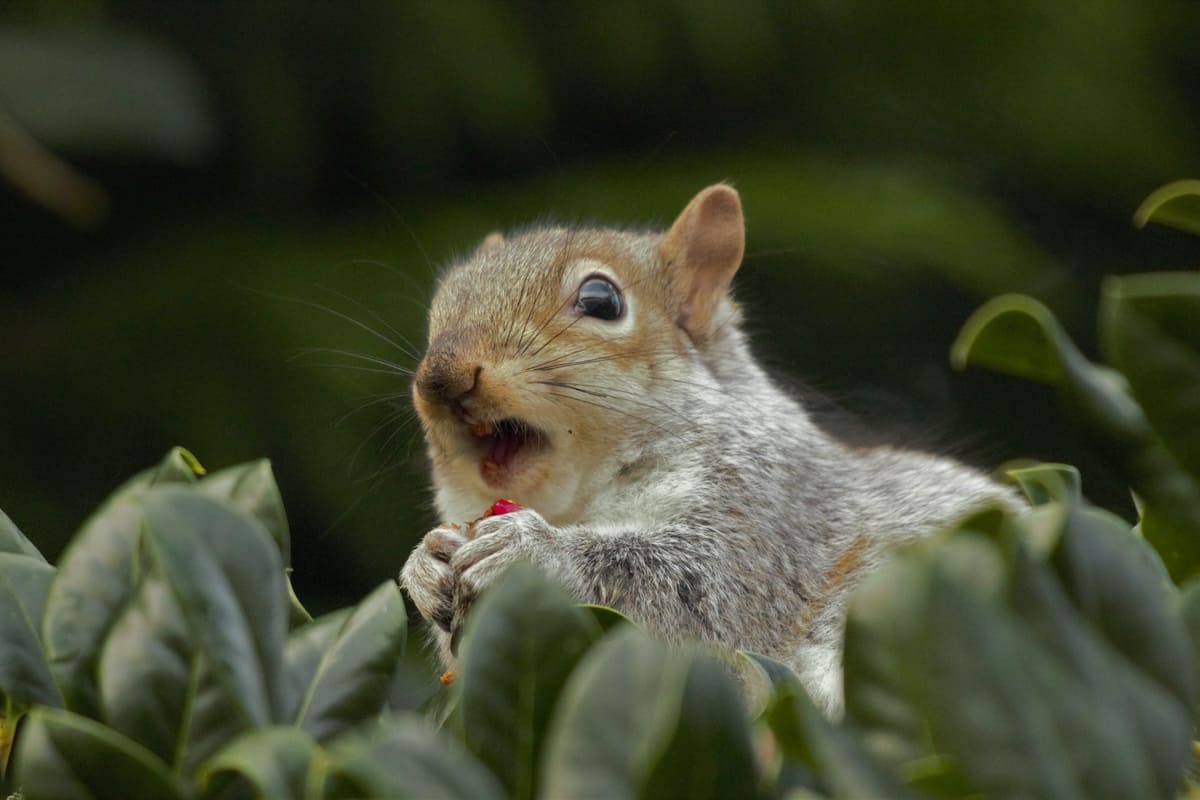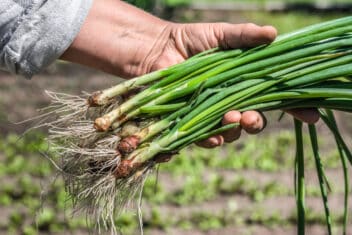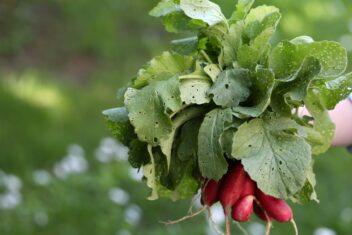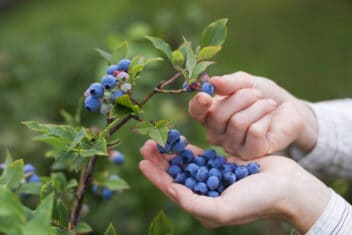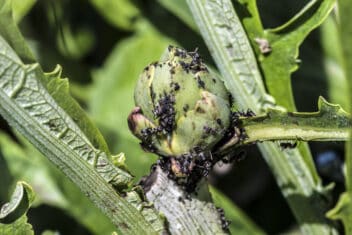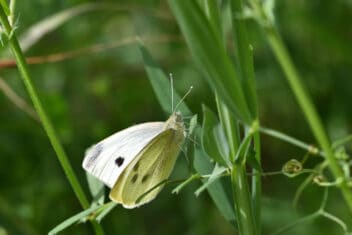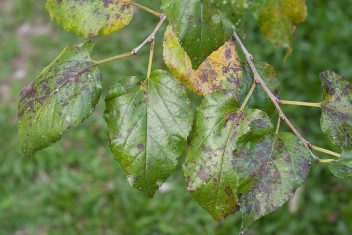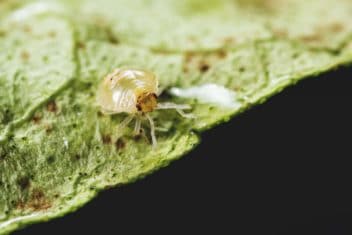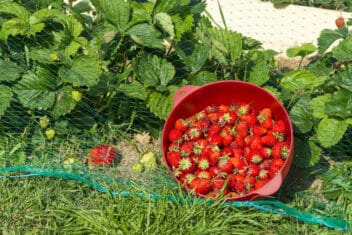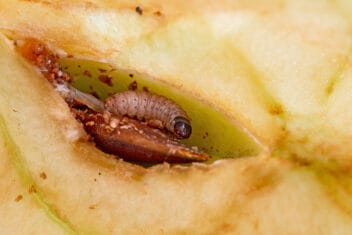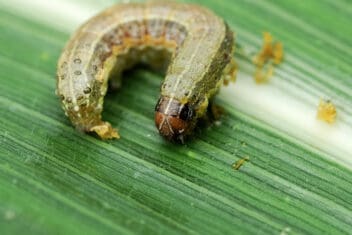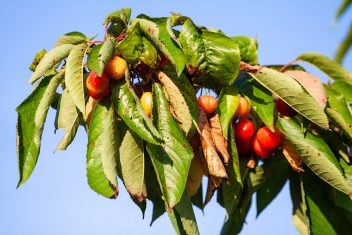Squirrels are sneaky bandits who will raid your garden and run off with the goods. There are several species of squirrels in North America. The grey squirrel is found throughout the lower 48 and is the one most likely to be stealing from your garden.
Most squirrels are “scatter hoarders.” That means they store food for the winter in numerous places. This is actually good for the environment as it spreads seeds throughout the area and provides winter food for other animals.
That doesn’t mean you want them to run off with your harvest. Here are some humane ways to handle your squirrel problems.
All About these Acrobatic Pillagers
Squirrels are opportunistic omnivores. In the wild squirrels eat a variety of vegetation, fruits, insects, and even bird eggs. And, of course, nuts.
Squirrels are natural diggers and will uncover seeds and flower bulbs in the garden. They love tomatoes, geraniums, and sunflowers in particular. In addition, they are big fans of fruits and will park themselves in your orchard to munch on apples and plums.
Keep in mind that squirrels love the branches of fruit trees as well as the fruit. What they especially adore is the inner layer of cambion. You may need to cover young fruit trees in the spring as the new leaves are quite aromatic and draw the squirrel’s attention.
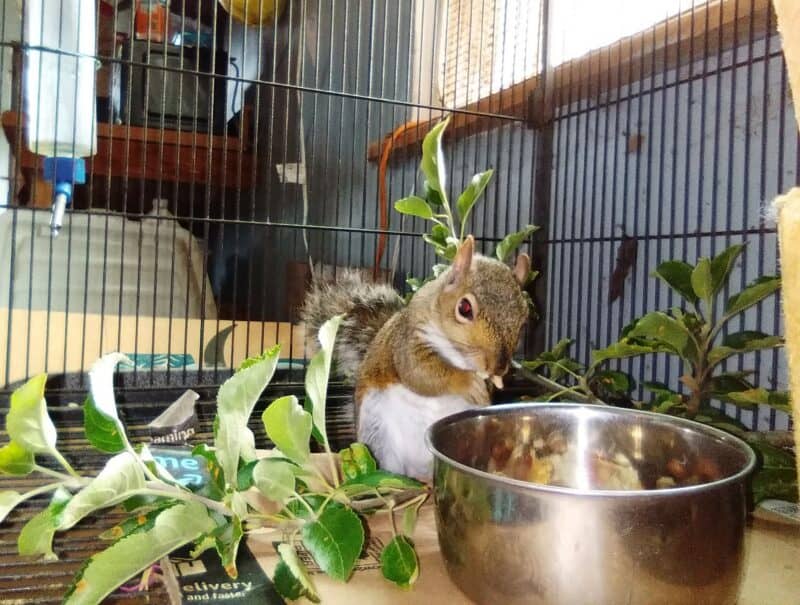
Squirrels have the Napoleon complex and can be quite bossy and even aggressive. Don’t try to hand feed them or pet them with bare hands. Enjoy their fun antics but keep some distance.
There are a variety of ways you can humanly convince the squirrels that you have not laid out the welcome mat just for them.
1. Fencing Is Your Friend
Fencing and its cousin netting are the best deterrents for protecting your plants from squirrels. If you have a small garden, I suggest you have wire on all four sides, plus the top.
Traditional Fencing
You’ll want something that completely encloses your garden on all four sides, with bird netting or something similar strung across the top.
Obviously squirrels are good at climbing and jumping. Clear tree limbs from around your vegetable and flower gardens to make it harder for the squirrels to figure out how to enter from above.
In addition, squirrels can dig, so make sure your fence is buried about 12 inches in the ground. Since they are smaller critters you need smaller spaced wire such as 2×3.
Chicken wire works well for squirrels. They are not strong enough to rip through it. However, if your fence is also protecting your garden from raccoons, you need a stronger welded wire.
Netting
Netting works well as long as you have the material on some kind of support system. Don’t just lay the netting on the plants because the squirrels have agile paws and will pull the food through.
Build a cage around your plants to string the netting over. It doesn’t have to be very strong as the squirrels don’t weigh much. Bamboo poles work well.
Dig a trench and put the netting under the ground to deter digging. Use cages around your most vulnerable plants, such as strawberries or blueberries.
Floating row covers also work well to deter squirrels. They don’t like to be trapped under the wavy, light fabric and are scared to push their way in.
Electric Fence
Electric fencing works to deter squirrels and keeps them from getting into the garden. One thing to note is to make sure there are no trees nearby that the squirrel can climb up and out onto a branch and drop down into the garden.
Space your wire about four inches apart and use three to five wires total. Start the first wire at four inches above ground level. For safety, be diligent about making sure the grass under the wire stays trimmed.
2. Break Out the Repellents
Squirrels are sensitive to smells and somewhat picky about what they eat. You can use this to your advantage.
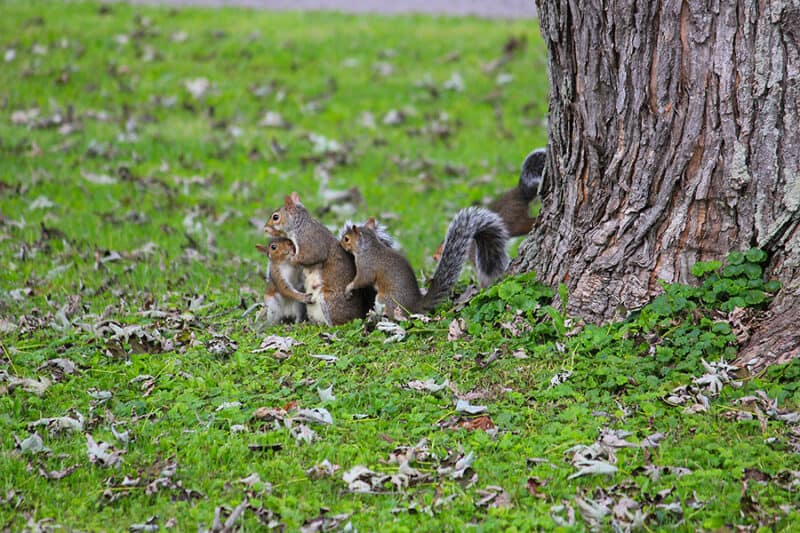
Chili Powder
Chili powder leaves a harsh smell in their nose that squirrels don’t like. This is a tactic that is often used by bird watchers to protect their feeders. You can also use cayenne pepper.
Mint
Mint has a strong smell and may repel squirrels but honestly, I’m not convinced of its effectiveness. It doesn’t hurt to try growing a few plants around your garden.
Coyote Urine
Repellents made from the urine of predators can be effective in frightening squirrels and their kin. Urine repellents are made by dehydrating the urine so you can sprinkle it around the plants or reconstitute it with water.
When using predator urine, you need to apply it every few days to keep the smell strong. Rain will wash it away.
Human Hair
Human hair doesn’t work as well as you would think it should. There is an old country method of using human hair to deter wildlife. This is based on the assumption that wildlife is naturally afraid of people.
Squirrels have become urbanized, with many living in urban areas. This means that they are used to the way humans smell and look, and aren’t they afraid of your presence.
3. Trap and Release
Trapping and releasing squirrels won’t solve your problem in the long run. Once you create a void in an ecological niche it will just get filled with more animals.
In addition, animals may respond to population decline by having more babies.
In some areas of the country, it’s illegal to trap and release wildlife so check with your local Department of Fish and Wildlife first.
Squirrels have babies in the spring and fall, so if you trap a female squirrel make sure she isn’t nursing babies who would starve to death without her.
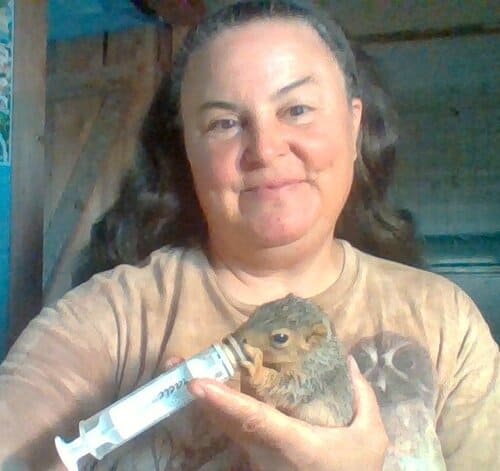
As a licensed wildlife rehabilitator, I take in many squirrel babies who have been injured or orphaned.
4. Dealing With Fallen Fruits and Nuts
Fallen fruits and nuts can go both ways in the garden. Fallen acorns, hickory nuts, and tree fruits will definitely attract squirrels to your yard, but it may also fill them up so they don’t bother your crops.
Some people advocate that you clean up all the fallen crops so that the squirrels don’t come into your yard. After all, once there, they may be tempted to look for some other tasty morsels such as tomatoes.
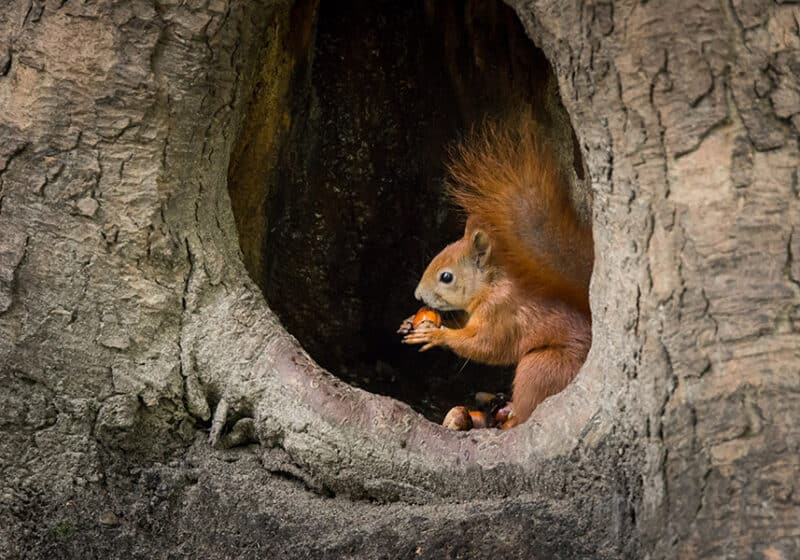
On the flip side, if the squirrels come into your yard and eat the acorns they may have satisfied tummies and not bother your garden. In fall squirrels are going to be most interested in crops they can store, like nuts and also seeds such as sunflowers.
Do you grow sunflower seeds for your bird friends and find the squirrels are getting to them first? You can also grow safflower seeds. Safflower is often a recommended replacement in birdfeeders because squirrels don’t like it.
In addition, you can cover the sunflower heads with cheesecloth so that they can ripen without interference.
5. Protect Fall Plantings
Fall has come and you’re planting flower bulbs and garlic for next spring. Unfortunately, this is the time of year when squirrels are most busy scavenging and looking for food to put by for the winter.
Fall is a popular time to garden when you’re out there planting your fall weather crops, and perennial plants and bulbs for next year. Insect pests are dying off, the weather is cooler and it’s a great time to be outside.
However, this is the time of year that squirrels are scavenging and storing foods for winter.
You don’t want next year’s flower bulbs to be in a hollow tree somewhere waiting to become a winter snack.
When squirrels see your nicely tilled or dug earth, they come to investigate. Squirrels often dig in the dirt looking for seeds or insects. They may uncover your plantings.
Even more irritating, they may pull up your bulbs, take one bite, and then leave it sitting on the ground somewhere.
Protect Your Bulbs
You can protect your flower bulbs in two ways: you can lay chicken wire either under the ground or on top of the ground.
For small bulbs such as crocus, it works well to place a section of one-inch chicken wire over the bulbs buried in the ground. Cover the bulbs and wire with soil. In the spring, the bulbs will grow through the wire.
For larger bulbs, such as tulips, you can lay a section of chicken wire right over the ground. Leave this in place till spring. When the plants start to grow remove the chicken wire.
There are also several types of bulb cages you can purchase at your local garden center that are made to protect new plantings.
Take heart, if you’re planting a perennial garden your plants will fill in after that first year. This will make it harder for the squirrels to dig in the garden.
6. Feed the Squirrels
Squirrels are very persistent but they can be distracted if given a better opportunity.
One tactic to prevent them from digging up your fall bulbs is to allow the squirrels to have the acorns, walnuts, or hickory that may fall from your trees. This is a good way to feed the squirrels as it encourages their natural gathering and doesn’t habituate them to human assistance.
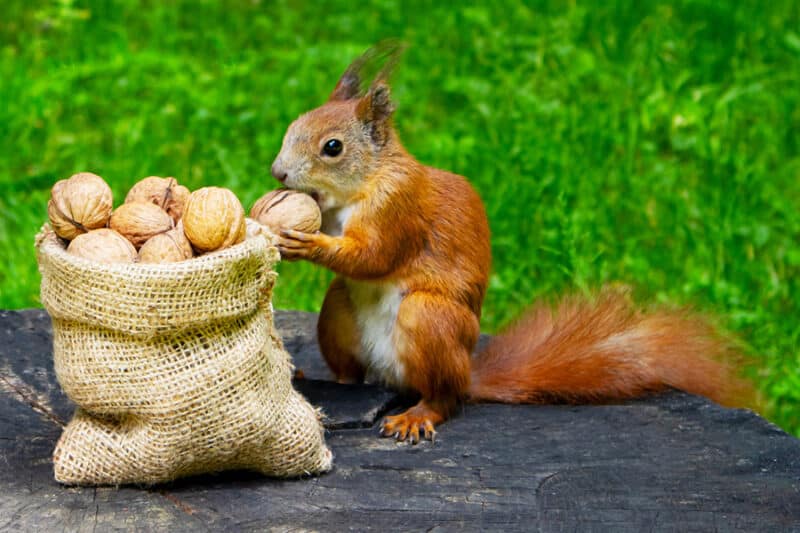
This gets us to the question of feeding our squirrels. We all know that they’re going to do their darndest to steal food from your birdfeeders. You may allow this, or you can erect baffles to keep them out of the bird feeders.
Should you give them their own feeding station?
That answer depends on if you enjoy the squirrels and want to help them. Giving squirrels their own feeder will certainly encourage them to come into your yard. However, it may also satisfy them and keep them from trying to eat plants you want to protect.
Squirrels are fun to watch and certainly entertaining as they squabble over their finds. However, it can be frustrating when what they find and want to steal is your garden produce. By following these guidelines, you can help deal with them in a humane manner. It’s a win-win for everyone!
